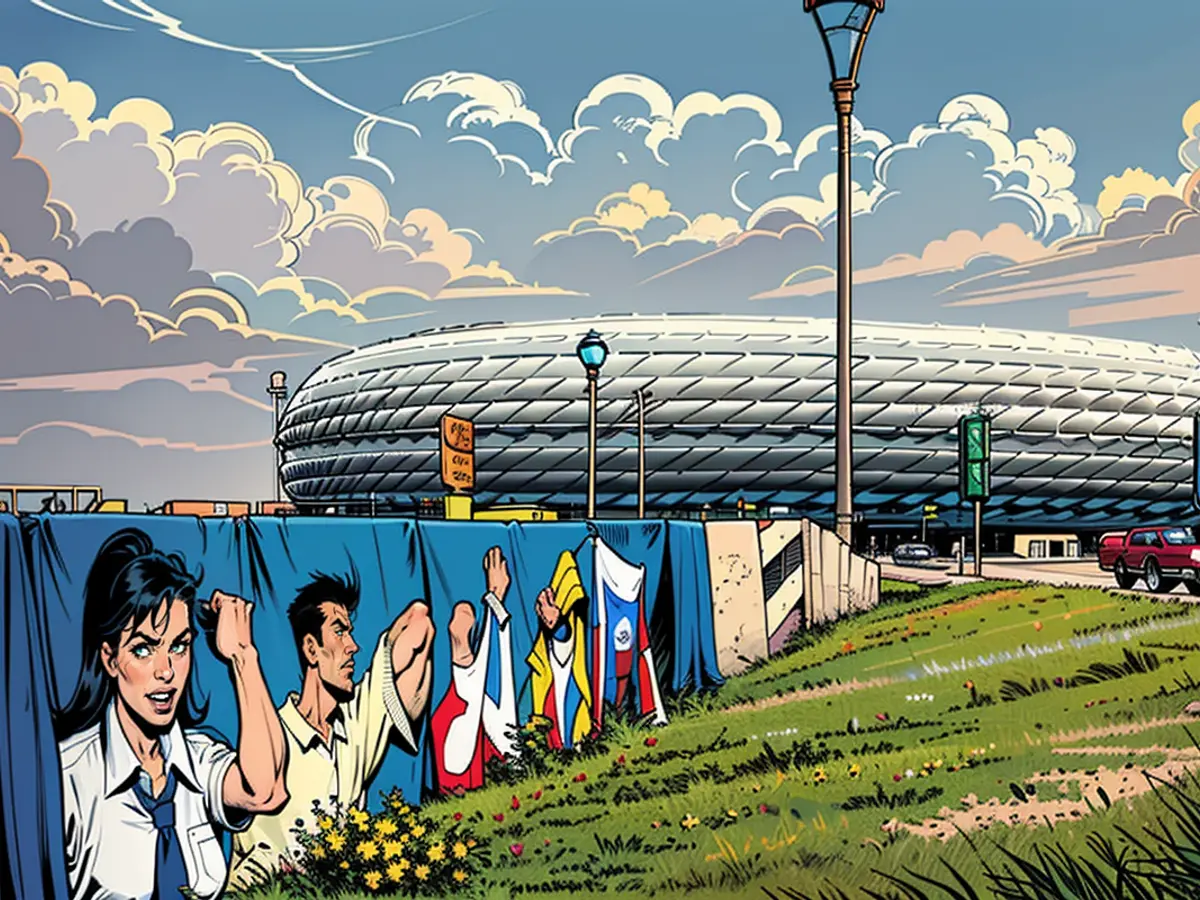Doubts on the home European Championships surfaces from the right-wing camp
Prior to the beginning of the European Football Championship in Germany, extreme right-wing parties are seeing success in the European elections. Can the tournament bring Europe together?
The slogan, a marketing phrase, greets Niclas Füllkrug at the press conference platform in the EM headquarters. However, after the European election night on Sunday, it holds a deeper meaning. During the election, far-right and right-wing populist parties have gained ground across Europe: In Austria, the FPO is the strongest force, in France, the Front National. And in Germany, nearly 16% of voters chose the AfD.
He finds it challenging to express himself politically, Füllkrug responds when asked about this. "I want everyone to voice their opinion." He describes influence as terrible when it comes to such matters. Yet, he makes a statement: "Essentially, it's important to me that we, at least, experience unity in football."
Football has a big responsibility this summer. The European Championship is meant to be a celebration of democracy. "United by Football, united in the heart of Europe," says the motto. The four-week period from June 14 to July 14 is intended to unite a continent dealing with difficult years. The starting situation is difficult: Typically, the EU emerges stronger after a crisis. However, following the Corona pandemic and Russia's attack on Ukraine, this capacity seems to be lost. At the elections, those advocating less Europe gained the most.
The new fairy tale of summer
It's uncertain whether football can solve these issues on its own. The tournament is also politically burdened from the inside. It wasn't politicians who wielded this high embellishment. The tournament has bestowed this high ambition upon itself. Manager Philipp Lahm emphasized this yet again - most recently in the "Frankfurter Allgemeine Sonntagszeitung." The tournament is intended to "strengthen us. Us, those who advocate for democracy, for a democratic way of life, for the rule of law."
The European election illustrated how much work is required to accomplish this goal. Approximately every eighth person in the host nation voted for a party that does not represent these values. A party that, according to the Constitutional Protection, holds right-wing extremist tendencies in part. A party that also had to distance itself from both EU top candidates due to possible connections to Russia.
With this claim, additional questions arise: Is it acceptable to wave the German flag? Or should one be aware not to leave this symbol to the right-wing extremists? A study warned after the home World Cup 2006 that patriotism in sports can have serious consequences. The issues of the country are immediately emphasized: the racist video from Sylt, the knife attack in Mannheim, debates over deportations to Afghanistan.
This doesn't quite align with the idyllic summer described. The fairy-tale-like description of 2006 is often recalled, during which the situation leading up to the tournament was not easy. The country had just overcome mass unemployment, and debates focused on establishing a guiding culture. Yet, there was no longer talk of these concerns.
Despite all the problems: Perhaps it arrives at the right time. "Major events that bring millions of people together have always had a strong influence," is the hope of tournament director Lahm. However, he admits that sports alone cannot halt these occurrences. "Football is not a savior, but it can be a tile in the mosaic to bolster the values that are significant to us," he admitted in the FAZ.
Thus far, it's been the case that political problems have affected even those who merely wish to play football - the German national team. Füllkrug must take a stance on the European election. A week ago, an ARD survey revealed that 21% of Germans desire a "whiter" national team. At that time, national coach Julian Nagelsmann and Joshua Kimmich made clear statements, triggering a larger debate.
In the end, this tournament presents a significant opportunity - politically and athletically. The direction it proceeds can be observed in Herzogenaurach later that month. In mid-March, the DFB unveiled the jerseys for the Euro 2024. The away kit, which proved to be a source of outrage among the far right - it was pink - has now become highly visible at public training sessions. In some instances, it has even sold out.
Read also:
The European Football Championship 2024, set to take place in Germany, could serve as a platform for unity, as Niclas Füllkrug hinted during the press conference. However, the success of far-right and right-wing parties in the recent European elections raises concerns about this goal, with parties advocating less Europe gaining significant support.








